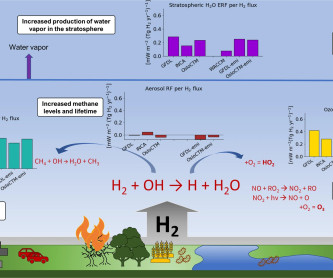UNEP study: small number of measures targeting black carbon and tropospheric ozone could yield immediate climate benefits
Green Car Congress
FEBRUARY 22, 2011
The climate change benefit is estimated for 2050 and human health and crop benefits are for 2030 and beyond. Black carbon and tropospheric ozone are harmful air pollutants that also contribute to climate change. Global benefits from full implementation of the identified measures in 2030 compared to the reference scenario.




















Let's personalize your content